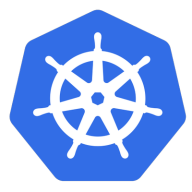

Kubernetes and OpenShift compete in the field of container orchestration platforms. OpenShift appears to have the upper hand in terms of security and enterprise support, while Kubernetes leads with cost-effectiveness and widespread community usage.
Features: Kubernetes offers impressive scalability, self-healing capabilities, and extensive automation like auto-repair and auto-scaling. It is geared towards users comfortable in diverse cloud environments. OpenShift, built on Kubernetes, stands out with enhanced security features, structured environments, and seamless integration with the Red Hat ecosystem, which provides built-in security measures and user-friendly elements.
Room for Improvement: Kubernetes could improve its dashboard interface, ease of use for non-Linux users, and the integration of networking components, along with enhanced scheduling and monitoring tools. OpenShift requires better documentation and improved integration, particularly with external platforms and some advanced security configurations. Users find its setup process to be complex, seeking more accessible interfaces and tools.
Ease of Deployment and Customer Service: Kubernetes is versatile across private, public, and hybrid clouds but often lacks direct support, leading users to turn to community forums or consultants. Red Hat OpenShift provides robust enterprise-level support within its package, appealing to large organizations requiring reliable assistance. OpenShift's deployment is streamlined by Red Hat's structured support offerings.
Pricing and ROI: Kubernetes, being open-source, is typically cost-effective, especially for businesses with the necessary infrastructure and expertise, only incurring support and storage-related costs. OpenShift's higher licensing fees reflect its advanced features and support services, catering to large enterprises needing comprehensive solutions. Both platforms offer significant ROI, with Kubernetes favored for lower operational costs and OpenShift for its enterprise-grade features and support.
We receive revenue and returns from its deployment due to improved services and applications.
I have seen a return on investment, and the metrics in return for the investment are very fast.
The application is stable, and I seldom require support.
They should prioritize skilled engineers for urgent issues.
Kubernetes is highly scalable, earning a rating of eight out of ten.
By using horizontal pod autoscalers, Kubernetes automatically adjusts the number of pods based on CPU, memory usage, or other metrics.
Kubernetes is a scalable platform, which is why we are using it.
I rate the scalability of Red Hat OpenShift Container Platform as a nine, as I haven't encountered any issues with scaling a cluster or applications.
Scalability is rated nine out of ten.
Our organization performs robust testing before sending changes to production, ensuring the stability of Kubernetes in live environments.
If any containers take more space, sometimes the cluster goes down.
Kubernetes offers high stability, allowing for easy scaling of ports and containers.
There haven't been any issues so far; it remains stable with no downtime or crashes, and even the upgrades are handled seamlessly without issues.
The upgrade process required addressing these failures and adjusting for changes made by external services such as the AWS CodeBuild.
Improved documentation would help in gaining scalable knowledge and making it more understandable.
There is room for improvement in this area, as Kubernetes could benefit from having more integrations, such as for scanning vulnerabilities.
Notably, the platform plus is perceived as quite expensive and some features from an infrastructure perspective are lacking.
I would like to see advanced cluster management added in future releases, such as a single pane of glass to manage multiple clusters.
the setup costs are high.
Since we use Kubernetes on-premises, the costs are related to our expertise and the personnel we hire.
The current licensing cost for this solution is around $23,000 per year, per month.
Notably, the platform plus is quite expensive according to the market.
Kubernetes also offers rollback control and auto-scaling capabilities, which are crucial for maintaining an application's availability even if nodes or pods go down.
Kubernetes has positively impacted my organization as 99% of microservices are running.
The most valuable feature of Kubernetes is its support for load balancing.
The cluster scaling features, such as the auto-scaling of cluster nodes and application replicas using horizontal and vertical pod auto-scaling, significantly impact our operations.
In terms of features in Red Hat OpenShift Container Platform, I find the orchestration itself quite useful for my customers because it integrates with lots of tools.
It is important for critical systems.
| Product | Market Share (%) |
|---|---|
| Red Hat OpenShift Container Platform | 19.2% |
| Kubernetes | 6.1% |
| Other | 74.7% |

| Company Size | Count |
|---|---|
| Small Business | 25 |
| Midsize Enterprise | 10 |
| Large Enterprise | 47 |
| Company Size | Count |
|---|---|
| Small Business | 14 |
| Midsize Enterprise | 4 |
| Large Enterprise | 39 |
Kubernetes (K8s) is an open-source system for automating deployment, scaling, and management of containerized applications.
It groups containers that make up an application into logical units for easy management and discovery. Kubernetes builds upon 15 years of experience of running production workloads at Google, combined with best-of-breed ideas and practices from the community.
Red Hat® OpenShift® offers a consistent hybrid cloud foundation for building and scaling containerized applications. Benefit from streamlined platform installation and upgrades from one of the enterprise Kubernetes leaders.
We monitor all Container Management reviews to prevent fraudulent reviews and keep review quality high. We do not post reviews by company employees or direct competitors. We validate each review for authenticity via cross-reference with LinkedIn, and personal follow-up with the reviewer when necessary.